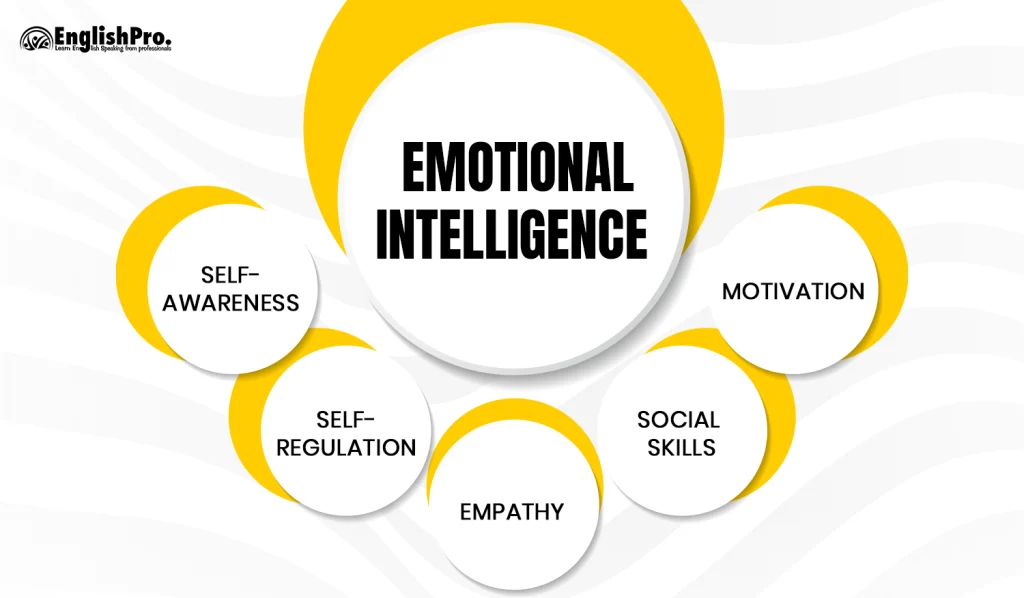Introduction
Emotional Intelligence (EI) defines the overall capacity to understand the self and others’ emotions. Further, acting accordingly is highly crucial for leadership.
It is evident that leaders with higher Emotional Intelligence are able to build strong working relationships, and manage conflict. Also basically nurtures successful integrated workplace environments.
With a Personality development course in Chandigarh, you can become a leader. A leader, who is in a position to foster trust and improve on communication. As well as results in their teams and organizations. In this blog, we will learn why emotional intelligence is the secret to effective leadership.
The Importance of EI in Leadership
Emotional intelligence is playing an important role in leadership. It is because it equips leaders to navigate emotions. It can be both theirs, and those of their team members, and respond appropriately under pressure.
The key activities that Leaders with high EI develop include trust, people motivation, and organizational culture.
They gain awareness and satisfaction of the emotional needs of others to enhance and achieve better communication, cooperation, and, solve conflict. Hence, get the best decision-making and better team performance. EI helps a leader to promote and coordinate the organization.
The Core Components of Emotional Intelligence

Building Strong Relationships- In other words, leadership EI can be used by leaders to create and sustain congenial business relationships with core constituencies.
They comprehend the feelings of their subordinates which makes it easier to develop strong and personal relations with everyone on the team.
Empathy and Understanding- EI allows leaders to recognize the conditions, emotions, and needs of the team they lead.
These changes give them an understanding of their colleagues’ circumstances. Thus, enabling them to give them improved support and motivation. Giving better morale, and improved work performance among the team members.
Improved Communication- EI helps polish up communication as a leader. People often focus solely on content, by recognizing the tone, which is used in conversations. And being able to respond to the emotional state of the person on the other end, one can enhance clarity, while avoiding misinterpretations of messages.
Motivation and Engagement- Emotional intelligence requires leaders to be in a position to understand the strengths of their subordinates and help them improve.
This means that their positive attitude can help improve workforce morale and participation thus, enhance efficiency and satisfaction in working.
Adaptability to Change- Consequently, emotionally intelligent leaders are ready to face any change because change is inevitable in business.
They regulate themselves during change and facilitate their teams during change by addressing change concerns, reducing stress, and providing change stability.
Decision Making- Those with high EI are calmer and think more before making any decisions in comparison to those leaders with low EI.
They can also be responsible for filtering want-want geopolitics and what a bored brain can cook up and come up with decisions that are healthy for all parties.
Learning With Self-Regulation and Impulse Control- The major factor of EI is self-regulation. Those possessing this skill do not get worked up when things get tough, they do not make hasty decisions, and instead, they display stability when things get tough for their subordinates.
Inspiring Trust and Loyalty- One of the ways by which emotional intelligence creates a positive perception for leaders is through the process of gaining trust and respect in their subordinates.
By being caring and providing steady assistance, and outreach to other individuals, and expressing emotions.
Balancing Emotion and Logic in Leadership
Emotion and rationality and differentiated in leadership by the process of encapsulating emotional intelligence and the percentile weight assessments.
CEOs and managers with a high level of emotional intelligence reason about situations, while using empathy.
This will assist them in making balanced decisions and filling shortages of skills and qualities among their team members. Further building trust and first of all achieving organizational goals and objectives with effectiveness, even if they have to face complicated or emergent conditions.
Training and Development Programs
Leadership development for EI involves courses that enable leaders to gain improved awareness of themselves as well as others.
These programs usually include such elements as workshops, role-playing, the coaching sessions. These aren’t typical for enhancing the effectiveness of managing emotions.
Such programs may help leaders in being able to manage stress or mitigate the effects of stress within the workplace. This will in turn aid in encouraging teams and eventually lead to better organizational results through maximizing emotional intelligence.
Practicing Emotional Awareness in Leadership
Emotional literacy is the process of identifying the feeling states that are distinct to one and how these feelings direct actions, decisions, and interpersonal relations.
It assists in unearthing better communication, and understanding, and improves leadership efficiency.
Thus, scientists have proved that having emotional intelligence is crucial for leadership it helps leaders cultivate bonds, express themselves, and think objectively.
Thus, empathy, self-awareness, and self-regulation are necessary skills needed in order to gain people’s trust. And further to mobilize employees and to solve conflicts efficiently.
Finally, EI enables leaders to build a positive organizational climate, motivate people, and achieve sustainable results. All this makes it one of the critical success factors for leaders.


Recent Comments